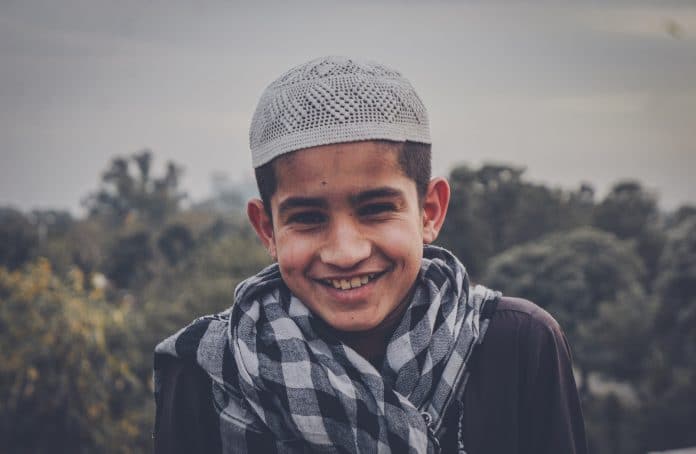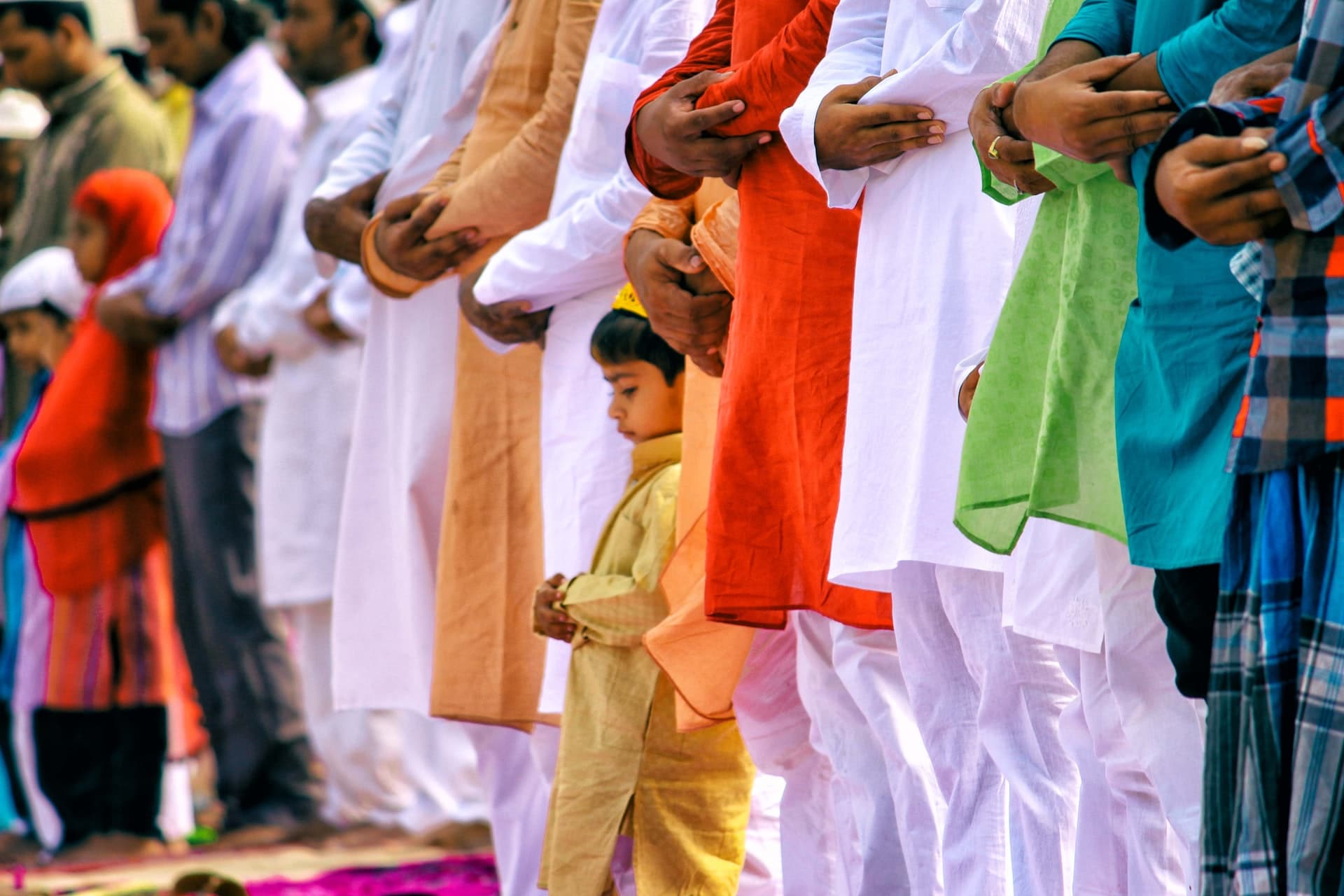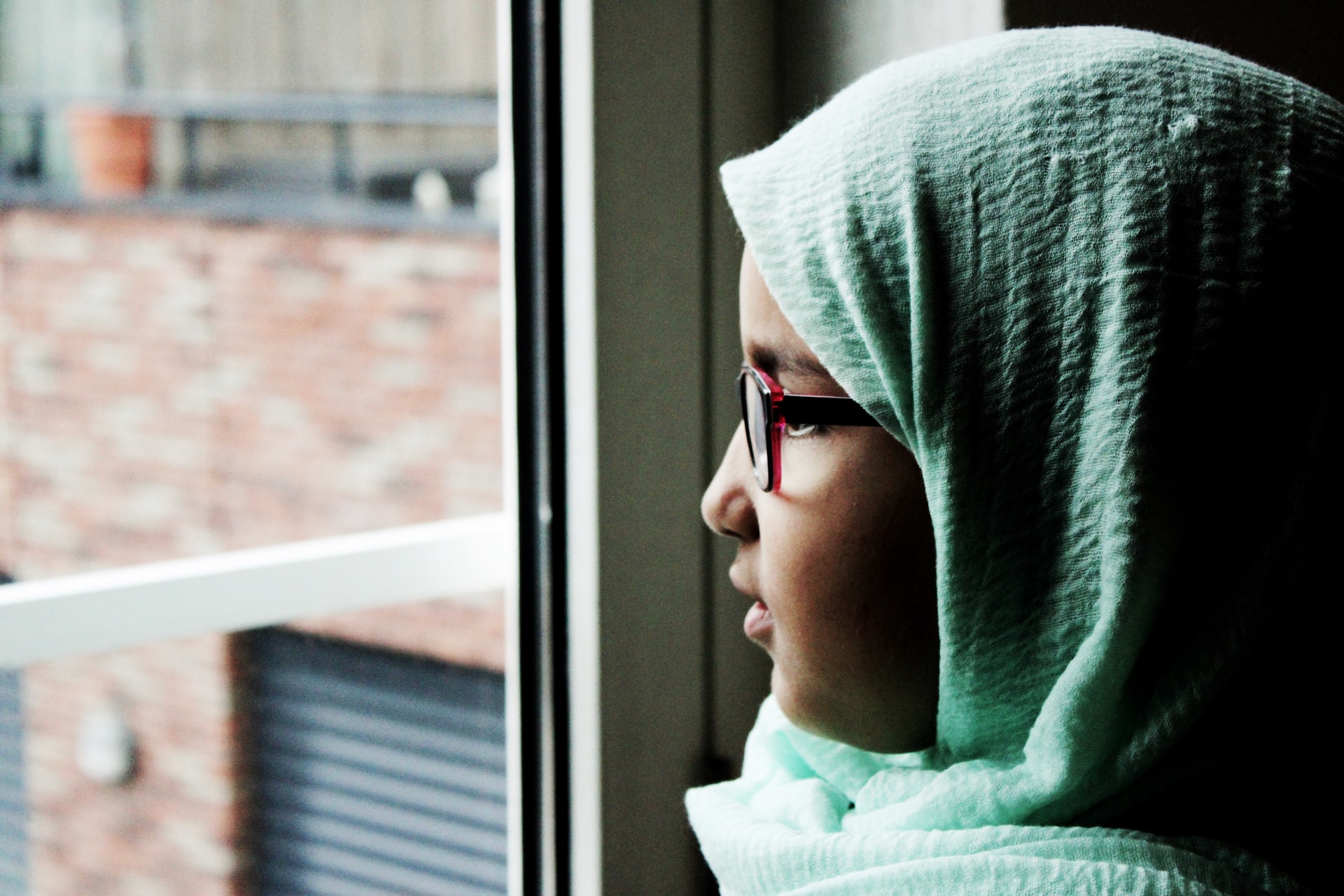
Thanks to a small number of Muslims and large chunks of the mainstream media, Islam has gained a reputation for severity and harshness. When it comes to the way we raise our children this can often be true, but usually due to our cultural backgrounds more than our faith.

Childrearing and Discipline in Islam
My parents and grandparents grew up in Pakistan where it was the norm to be smacked by your parents, extended relations, and anyone else that happened to be around and in a bad mood. It was also okay to be given a smack ’round the head for doing something you shouldn’t have, for watching someone else doing it, maybe for not stopping them or maybe again because someone was in a bad mood. Once they had immigrated to England, my parent’s generation did not quite realize that simply transferring the parenting methods of rural Punjab/Gujrat/Dhaka/Sylhet to East London might not be sufficient to bring up your child in the best possible way (I have so many happy memories of being chased by my mum flip-flop held aloft).
There is also the traditional South Asian thinking that a good child is an obedient child, smacked and yelled into submission by a parent who knows best. How do you tell such parents about feeling left out because you dress differently, weighing up the way you feel about clothes, boys, life in general as a teenager with the need to please your parents and be a good Muslim? Who do you talk to about peer pressure, bullying, or all the other things that confuse kids?
This is not to denigrate my parents or all the others out there who have struggled to reconcile two cultures, their faith, modern life, and all of the issues that face immigrants, with bringing up their child in the best way that they could. At the same time, they have also had to try and square Western and Eastern concepts of how a well-raised child should be. Is it any wonder that they and we were so confused?
What we have to examine is whether the new generation of parents who are disinclined to smack their children are leaving a vacuum with respect to managing the behavior of children. If we don’t smack, how do we get our children to listen to and respect us? Have we gone from physically abusing our children to setting no parental boundaries for them at all?
I love the Islamic concept that when we do things with the aim of pleasing Allah we engage in worship, even if they are just everyday actions. So cooking a meal is a chore, but cooking with the aim of pleasing Allah by feeding his creation and eating to take care of the body he gave you as an Amanah (trust) becomes an act of worship.

Similarly, childrearing can be hard and challenging work, but when engaged in with the intention of pleasing Allah and carrying out the work he has assigned to us, it becomes an act of worship from beginning to end. The waking in the night, the cleaning of stuff that makes other people leave the room, the difficulties of breastfeeding, the fatigue, the duty to be mindful of what you say and do, having to constantly watch your little ones—all become the living, breathing, walking, waking worship.
Muslims believe that through our words, our soothing, our chores, all of the small kindnesses of a mother and father, Allah elicits from our worship and forgives us our sins. With this thinking in mind, it becomes much harder to smack a child and much easier to take a breath and act rationally.
Islam encourages us to follow the example of the Prophet (peace be upon him) when it comes to our everyday lives including raising our children. His approach to his family was epitomized with gentleness and compassion. There is a hadith, or Prophetic tradition, in Islam that says:
Abu Salmah narrated that Abu Hurayrah said, “The Prophet of Allah (peace be upon him) kissed Hasan ibn ‘Ali (his grandson) while Aqra’ ibn Habis was sitting nearby. Aqra’ said, ‘I have ten children and have never kissed one of them.’ The Prophet (peace be upon him) looked at him and said, ‘Those who show no mercy will be shown no mercy.'” (Bukhari, Volume No. 91)
This tells me that affection and mercy towards our children is a necessity if we wish for the same. The Prophet (peace be upon him) was also never known to hit a child. Instead, a Muslim parent is encouraged to teach by a good example and discouraged from disciplining until the child is seven years old. At seven years, the child begins the age of tarbiyyah, or good upbringing. These are the years requiring firmness and instruction in educating the child and teaching them good manners—again the focus is on firmness and not violence. Once the child reaches puberty, the parents’ role becomes one of friend and mentor as the child is considered to be old enough to be responsible for their own actions.
Must Read: Islam’s Take on Children and Kinship Ties
I like this idea of a gentler, more peaceful parenting—less friction, and more kindness. I like the idea that it’s okay to indulge your children sometimes and say yes to them. We don’t have to behave like tyrants. It’s okay for the house to be a mess, for your kids not to be reading Shakespeare by six and joining Mensa by eight. It’s okay not to be perfect. I am coming to realize that parenting is a learning process; we are scared because we only get one chance with each of our children. But I realized some time ago, thanks to my oldest daughter, that when we make a mistake, we can stop, apologize and agree to try again. Every day is a new day and a new chance at doing things in the best way we can.
So when we need to discipline our children, we could hit them, but how would it make us feel to make a mistake or disagree with our employers or spouse and be smacked for it? How do we prefer to be told? Discreetly, gently and with patience surely. Perhaps we could stop and do the same for our children, thinking of it as our daily worship.
My parenting style? Like my parents, a little confused. When I ask nicely, explain and let things go, my family calls me English mum. When I lose it and shout and issue orders, they call me Punjabi mum. I guess I am still learning, with my faith as a guide.
Instead of saying “Come on, let’s go!” maybe you could have picked him up and twirled him around and said something sweet, and by the time he knows it he’s fifty yards from there, but happy to be with his happy mom. ~ Sandra Dodd
(Originally published in January 2011.)




































Lovely insight and education. Thank you for sharing.
Great post! A source of inspiration for gentle and peaceful parenting which I use is to always be mindful of the fact that my children are watching how I handle everyday stress and how I treat others. Knowing that this will be the foundation for how they will react to stress and how they will treat others when they become adults, I strive to set good examples everyday. It is very important to me for my children to grow up to be happy, healthy well-balanced adults who enjoy their lives. If kids grow up seeing their parents crumble and act irrationally under the pressure, and/or engage in unhealthy conflicts with others, chances are they will follow that same destructive path. Thank you for sharing your perspective. As parents, we are all works in progress!
[…] parenting†really represented an entire culture, I asked Meade for permission to reprint a recent essay on the site by a Muslim mother in London describing her views of “Islamic parenting.†She and […]
[…] parenting†really represented an entire culture, I asked Meade for permission to reprint a recent essay on the site by a Muslim mother in London describing her views of “Islamic parenting.†She and […]
An excellent piece that resonates with my own upbringing. It has made me question what I may do once I have children.
Thank you for writing so honestly.
Thank you so much for this article. Your writing style is clear and gentle, and I loved what you had to say about parenting through faith. I am not of a particular religion myself, but I have a great deal of respect for individuals who are so deeply thoughtful in their faith, and who apply it to their daily lives in such a loving and wise manner.
And as a side note, I’ve read most of your articles here, and you have given me new respect for Muslims. I have always tried to keep a respectful mindset with regards to other religions and faiths, but you are helping to show me what a loving religion Islam can be.
Thank you.
[…] the past, when I have written about Islam’s perspective on child discipline, I described it as one where gentleness is preferred according to the tradition of the Prophet […]
[…] **This was reposted from InCultureParent.com. […]
Assalamualaikum. Alhamdulillah and thank you for this article. I am a mother of two beautiful girls aged 3 and 2 respectively. I want to be the best mom possible but I have to admit it can be a struggle and quite a challenge. Being Asian myself, I thought a mild occasional spanking is necessary but I realize now that my kids are way too young to understand most things. Instead, I’ll just shower them with affection and love and try my best to explain things patiently in the best way possible.
Thank you so much for this post! I knew that some of my muslim friends have this same parenting style, without violence, even if sometimes we were raised differently. We all struggle from time to time, but I think with a bit more mindfulness and lots of affection and love for our children, we all can make it – indipendently of our religion. – I love this post!
[…] Read here to see how one Muslim has chosen to approach parenting with an Islamic […]
[…] Read here to see how one Muslim has chosen to approach parenting with an Islamic […]
[…] To get to the original website where the article was first published, click here […]
Salam
I came across your post and found it very good…..
I need an advice .. I have a one yr old daughter…
My husband works in dubai. ….. I have to do training for my specialization am a doctor. …. my training will be in other city and by any means u can’t take ny daughter with me there for permanently living with me
My mother in law is very nice women and she asks me to leave my daughter with her and come on every weekend ti visit
whats the Islamic perspective of leaving kids with grand parents. …I will visit her every weekend bt I want to know is it allowed
Assalamualaikum, thank you very much for this inspirational writing.
Hi I was googling Islamic beliefs when I came across your post. We are American and our neighbors are from Pakistan I think. Our kids love playing together but their dad doesn’t allow the kids to come to our house. My girls always have to go over there. I was just curious why? If it was just how he wants it or if it’s part of a belief
Thank you
Hi, Marley
I don’t exactly know why he does not let his kids go to your house. But at the same time, most Muslims are very careful with raising their kids as good Muslims according to Islamic tradition and rules( more like ethical procedures). Just to give you an idea I wanna give you an example; we do not eat pork or drink alcohol, we do not even eat meat if the animal is not slaughtered by Islamic traditions. As I said some families are very careful with this to make sure their kids are being raised right. I assume since ‘you guys as neighbors, do not know each other well they probably do want their kids to be exposed something not-Islamic( it could be anything, there are a lot). I believe you both guys should visit each other and sit down have good boundaries with your neighbors, get to know each other. Earn each others’ trust if you want your kids to be friends with each other. We can be looking at some stuff differently from each other but this does not mean we can’t have good relationships. I believe we should all put some effort to at least try to understand each other then we will see that it works. Salam !!